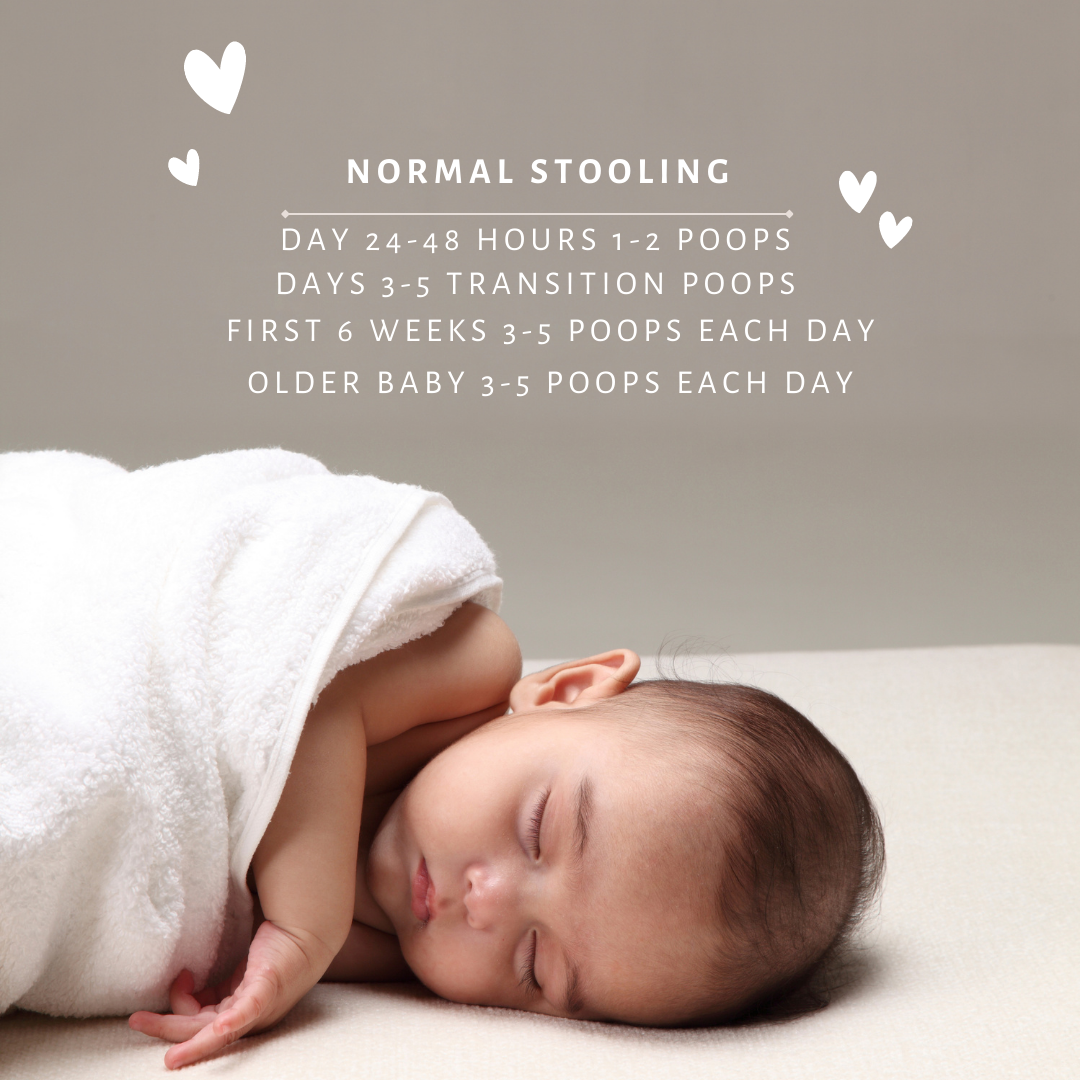How much should my newborn poop after my milk comes in?
After your milk comes in, the baby should have at least 3-5, up to 6-8 mustard colored, yellow, or brown stools a day. The stools should smell like buttered popcorn and may have a curd like appearance. For a poop to count it should be at least the size of your index finger and thumb touching together in the ok sign. It’s very important that your baby stools 3-5 times a day for the first 6 weeks postpartum. If your baby is not stooling this much, find a lactation consultant and talk with your pediatrician. With many breastfeeding challenges, small problems can lead to big ones if not dealt with promptly. Your baby may not be removing enough milk from your breast, or may have difficulty moving their bowels. Babies who are born prematurely have more difficulty moving their bowels than full term babies. A lactation consultant can help you get to the root of the problem. If the problem is due to difficulty moving bowels, strategies such as infant massage, exercises, or warm compresses can help.
Another impact on infant stooling is their gut health. We know that probiotics go through breastmilk. Mothers who are exposed to antibiotics during labor or postpartum may find that taking a quality probiotic and eating a diet rich in onions, garlic, leeks, dandelion, jicama, or Jerusalem artichokes which feed good bacteria helps their infant’s gut health to improve as well as their own.













